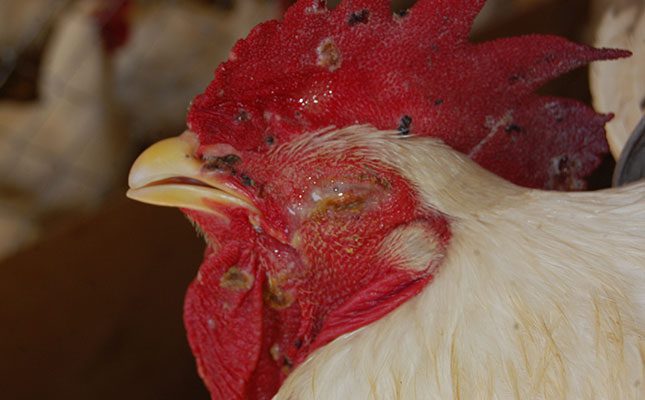
Photo: Wikimedia Commons
Izaak Breitenbach, general manager of the South African Poultry Association’s broiler organisation, said while fowl pox was not a big concern presently, farmers should ensure that their biosecurity measures were up to date and maintained.
“This is an isolated problem that can be managed. It is likely that the birds that became sick were either not vaccinated, or something went wrong in the vaccination process. The virus is not really serious or at the level of avian influenza, so there is no need to panic,” Breitenbach said.
He said poor hygiene played a role in the spread of fowl pox and should be a matter to pay attention to. However, if a flock was properly protected and cared for, there should not spread beyond the flock in the case of infection.
Breitenbach said farmers should ensure their birds were vaccinated and seek assistance if faced with fowl pox in their flocks.
Fowl pox or avian pox is a contagious viral infection in poultry that causes painful lesions on the animal’s skin.
The disease is characterised by the formation of raised, wart-like lesions on the skin, combs, wattles, and sometimes in the mouth and upper respiratory tract of infected birds. These lesions can vary in size and severity, ranging from small nodules to larger wart-like growths. In severe cases, the lesions may interfere with a bird’s ability to eat, drink, and breathe.
Fowl pox is usually spread through direct contact with infected birds or contaminated surfaces. Mosquitoes and other biting insects can also transmit the virus from infected birds to healthy ones, making vector control an important aspect of disease prevention.











